
[caption id="InBritainTheseDays_img1" align="aligncenter" width="102"]
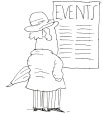
[caption id="InBritainTheseDays_img2" align="aligncenter" width="688"]
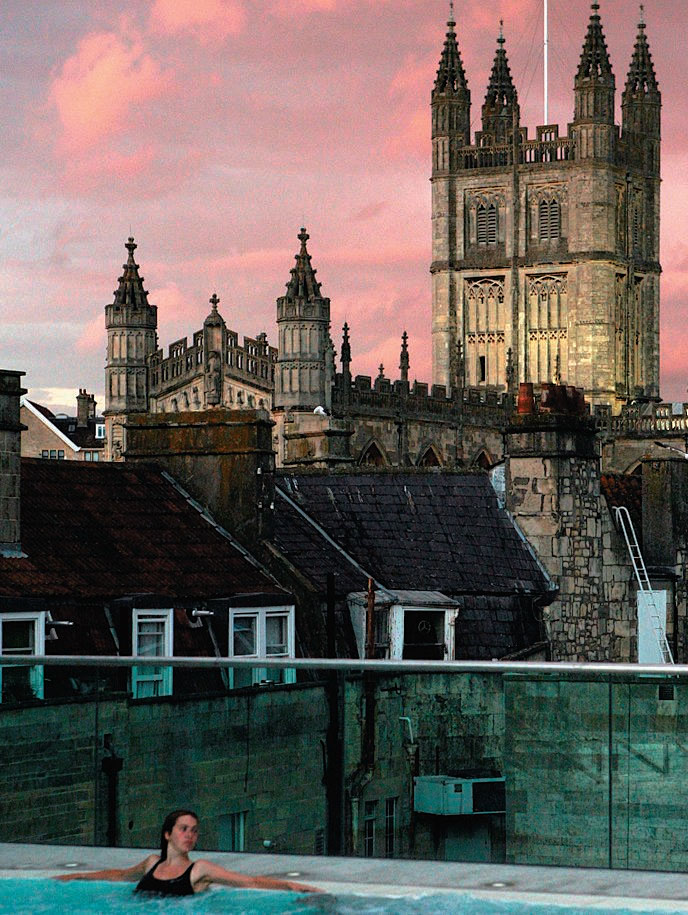
GETTY IMAGES
BATH SPA REOPENS
For centuries, the sulfurous waters of Bath Spa were actually bathed in, not simply sipped in the Pump Room. In 1978, however, the thermal springs were made off-limits amid concerns over the safety of the water source. Since before recorded history, the only natural hot springs in Britain have poured out more than 1 million liters of mineral-rich hot water a day. The Romans built the most complete leisure spa in northern Europe around the springs. In another fashion, 1,500 years later, the Georgians did the same. Between the remains of the Romans and the Georgians, the city of Bath has been one of England’s most popular tourist destinations for years. Still, it has long seemed a bit odd to visitors that Britain’s most famous spa town has proffered everything imaginable for visitors—except a spa.
Over the past generation, several unsuccessful schemes for reopening the thermal waters to the public were floated. Then, the city decided to take on the job as a millennium project. That it took until late 2006 to accomplish—at three times more than the original budget—caused local residents, whose council taxes funded the project, to become mighty steamed. Still, at last the long awaited new Bath Spa is open to the public. Steam rooms, massage, hot stone therapy and the like garnish the central attraction—a rooftop pool of naturally sudsy hot spring water in which to romp in the shadow of Bath Abbey.
WE’RE HAVIN’ A HEAT WAVE!
Europe sweltered through the summer as much as we did. Britain recorded its hottest July day ever as temperatures hit the upper 90s for days on end across southern England. The two-hour shifts of Buckingham Palace guards were reduced to one hour, and judges at the Royal Courts of Justice were allowed to remove their wigs. At Colchester Zoo, lions were given blood-flavored ice blocks to lick and monkeys got ice blocks embedded with fruit.
[caption id="InBritainTheseDays_img3" align="aligncenter" width="945"]
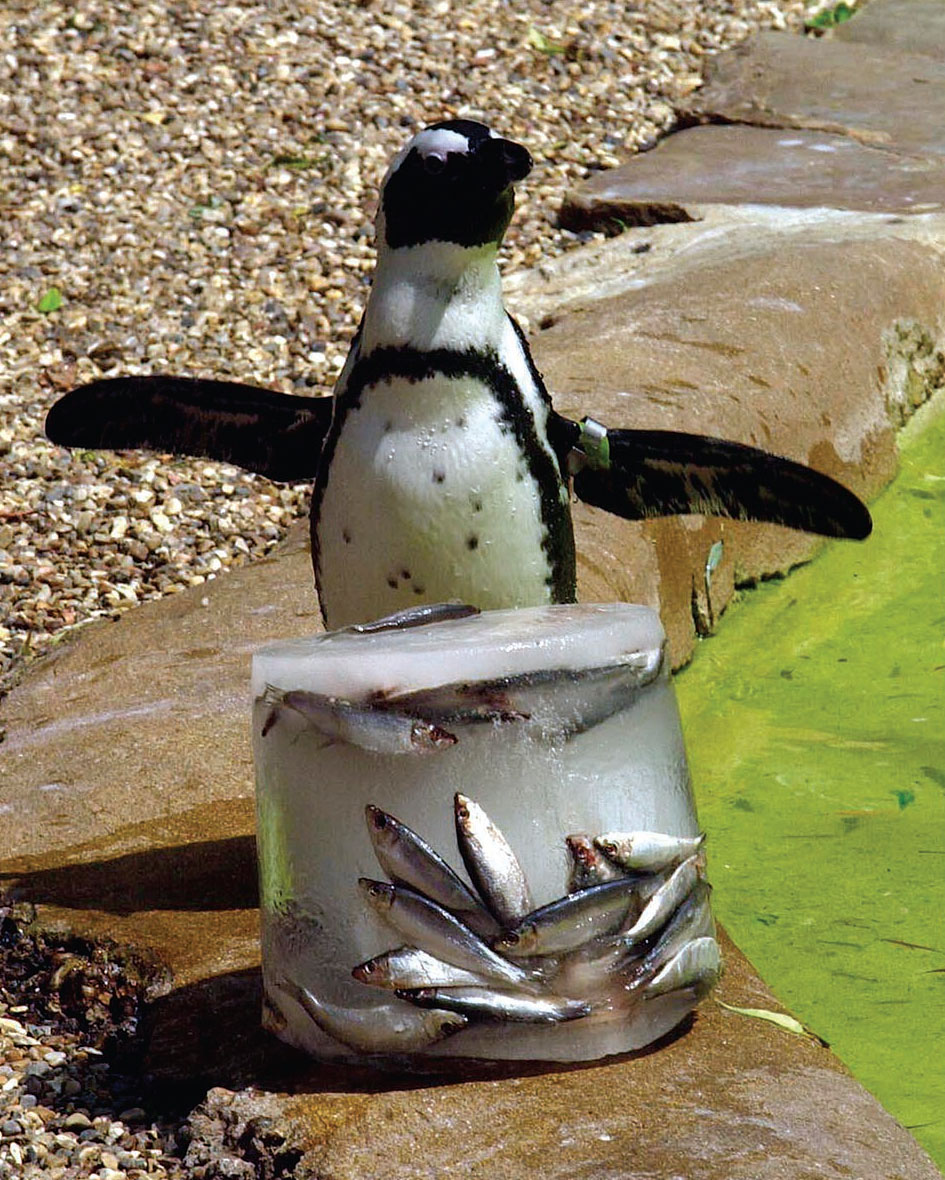
SAMANTHA PEARCE/PA/EMPICS
Down in Spain and southern France, they are used to this kind of heat, but Britain is ill-equipped to deal with the sauna-like conditions. Road surfaces, not engineered for such sweltering heat, were liquefying. So were people. The London Underground has no air conditioning; temperatures in the Tube were running at 117. Relatively few of Britain’s old buildings are outfitted for air conditioning, as are far fewer residences. London officials advised people to carry a bottle of water with them. Well, that certainly sounds sensible.
[caption id="InBritainTheseDays_img4" align="aligncenter" width="689"]
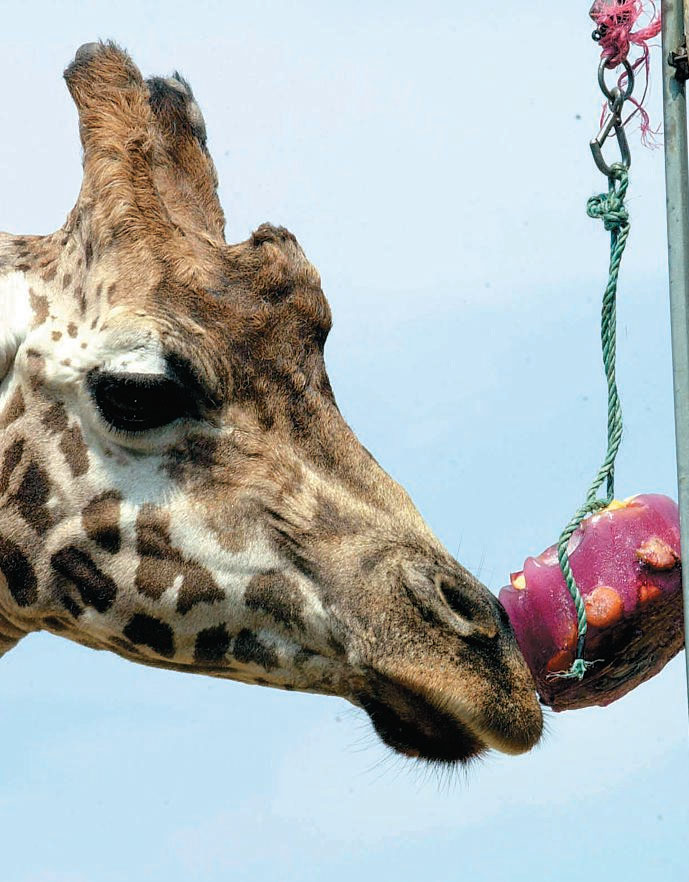
SAMANTHA PEARCE/PA/EMPICS
Still, where there’s a will…Even at the height of the summer heat wave, 8,000 people queued up to enter Buckingham Palace for one of the Queen’s annual garden parties.
REMEMBERING THE QUEEN MOTHER
“This will be a living and growing tribute to my beloved grandmother,” Prince Charles said as the Queen Mother’s Memorial Garden was unveiled and opened to the public at Edinburgh’s Royal Botanic Gardens this summer. The Queen, the Duke of Edinburgh and Camilla were present as well for a Royal Family visit to the two-year collaboration between the Queen Mother’s Memorial Fund for Scotland and the Scottish capital’s famed botanic gardens. The site features four secret gardens with plants from around the world and a Celtic labyrinth. A stone pavilion, its grotto-like interior studded with shells collected by schoolchildren across the country, houses a bronze portrait of the Queen Mother. Prince Charles described the pavilion’s design as truly inspiring: “I am enormously touched that so many people at home and abroad have wished to contribute to the memorial.”
[caption id="InBritainTheseDays_img5" align="aligncenter" width="689"]
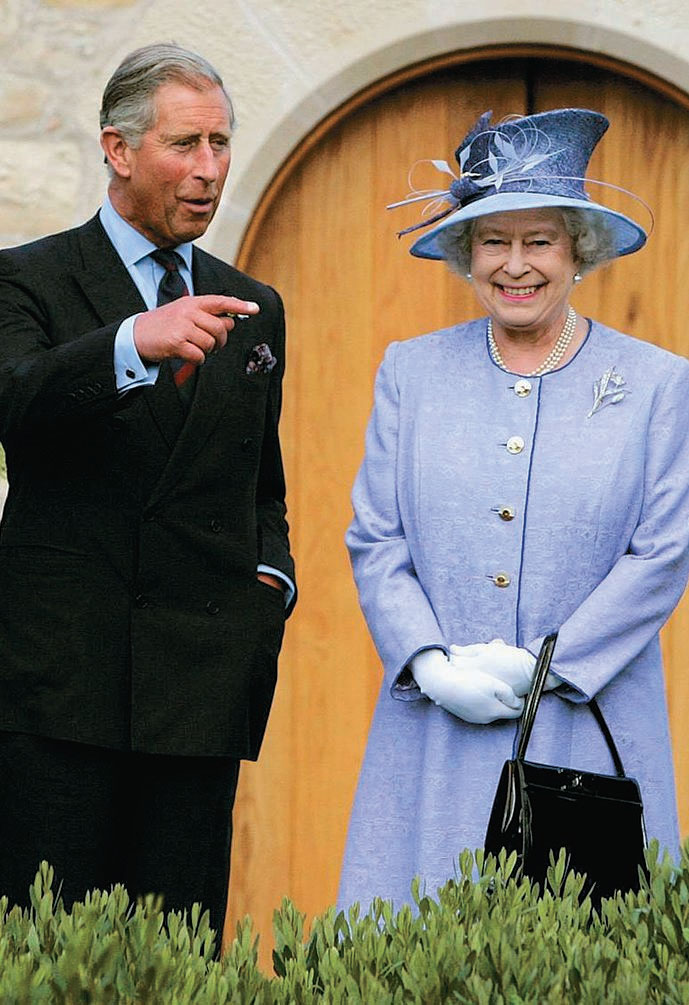
TIM GRAHAM/GETTY IMAGES
“LOVE, LOVE ME DO”
The guitar on which Paul McCartney strummed his first chords fetched £330,000 in auction at London’s Abbey Road Studio. It was an old school friend of Sir Paul’s who put the Rex acoustic guitar on the block—to fund his retirement. “This was the first guitar I ever held,” McCartney acknowledged. “It was also the guitar on which I learned my first chords at his house at 43 Elswich St., Liverpool.” In 1957 Sir Paul used the guitar to persuade John Lennon to let him join his band, The Quarrymen. Though the instrument sold for three times its preauction estimate, the guitar’s buyer, himself an auctioneer, was well pleased: “This is such an important piece of rock history and I am an extremely happy man tonight. Without this guitar The Beatles may never have existed.”
KEEPING UP WITH THE JONESES
Never mind keeping up, in Wales you can’t get away from the Joneses. One of the most popular surnames in the principality, Joneses are all over Wales (with their highest concentration in the North Wales slate-mining town of Blaenau Ffestiniog). Now, S4C, Welsh television, wants to get the family together—to set a new world record for the largest gathering of people with the same surname. Some 1,600 Joneses are expected to fill the seats this month at the Wales Millennium Centre in Cardiff for a show called, appropriately enough, “Jones, Jones, Jones.” Music, dance and comedy performances by a variety of Welsh celebrities named Jones are on the program. Guinness World Record officials will be on hand to validate the record-breaking event. Tickets for the show are necessary, of course, as are a driver’s license or passport to verify true Jonesness.
[caption id="InBritainTheseDays_img6" align="aligncenter" width="687"]
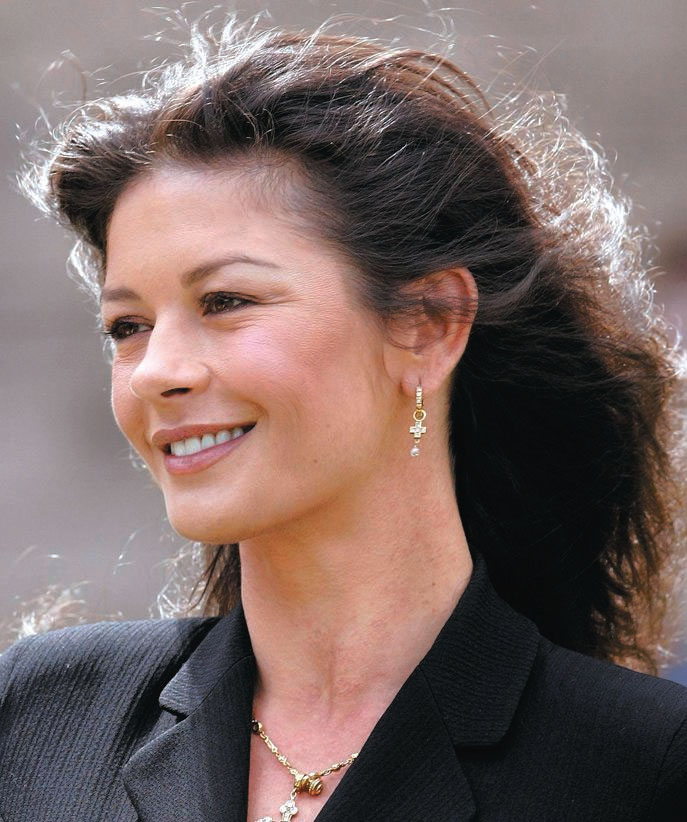
ANDREW MILLIGAN/PA/EMPICS
PUBS IN TIME
The ever-active Campaign for Real Ale (CAMRA) announced its new “Pubs in Time” program. Commemorative plaques have been awarded thus far to 14 pubs for the unique part they have played in shaping history. Plaques will be awarded subsequently to pubs eligible because events or activities that took place on the premises had significance to the life and history of the nation. The fact that a well-known individual simply frequented a particular establishment, however, is not sufficient for nomination.
[caption id="InBritainTheseDays_img7" align="aligncenter" width="636"]
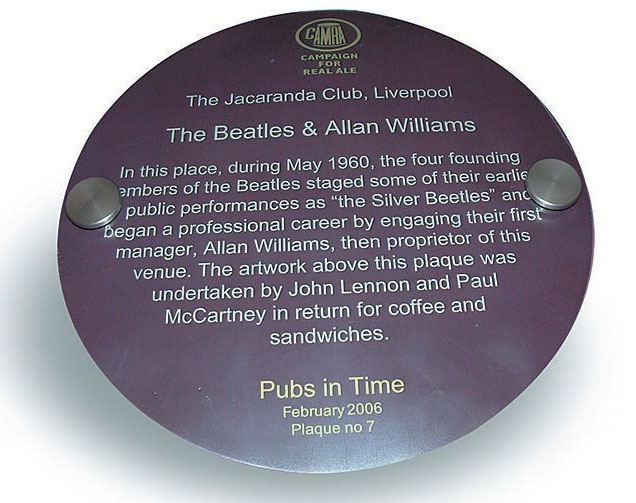
COURTESY OF THE CAMPAIGN FOR REAL ALE
Stuffy as that sounds, the first honored pubs are a wide-ranging and fascinating collection. Liverpool’s Jacaranda Club, for instance, is where the young musicians who became The Beatles played their first public performances in 1960. At The Eagle in Cambridge, Francis Crick and James Watson announced, “We have discovered the secret of life.” The discoverers of DNA dined there regularly.
The ancient Angel and Royal in Grantham has had such visitors as King John, Oliver Cromwell and Charles I. ’Twas here in 1483 that Richard III signed the death warrant for his cousin the Duke of Buckingham. At Oxford’s Eagle and Child, the Inklings gathered regularly around C.S. Lewis and J.R.R. Tolkien. They affectionately called the pub “The Bird and Baby.”
THE MIDDLE AGES MEET THE INTERNET
Back in 1085, King William the Conqueror decided to take an authoritative survey of his won kingdom. He commissioned a detailed census and property tax assessment throughout the land. The results have become known as the Domesday Book. Its detailed record of more than 13,000 places enumerates pastures, mills, fisheries, farmland, meadows and woodland, and numbers freemen, bound peasants and slaves. The entry for Worcestershire’s Cleeve Prior, for example, reveals: “Worcester Church itself hold Cleeve Prior. 10 1/2 hides. In lordship 2 ploughs; A priest who has 1 hide and 2 ploughs; 9 villagers and 5 small-holders with 4 ploughs. A mill which pays 1 sester of honey. 4 male and 4 female slaves; meadow, 20 acres.”
One of Britain’s most well-known documents, now the complete Domesday Book is available online. Visitors to the National Archives Web site can search by its 13, 418 place names or by a person’s name. The original parchment volumes were written in Latin, of course. While summary results of Domesday searches are free, the Web site does make available for a small fee whole pages of the original text—along with an English translation. Web site: www.nationalarchives.gov.uk/domesday
BRITAIN’S UNSUNG LANDMARKS
[caption id="InBritainTheseDays_img8" align="aligncenter" width="674"]
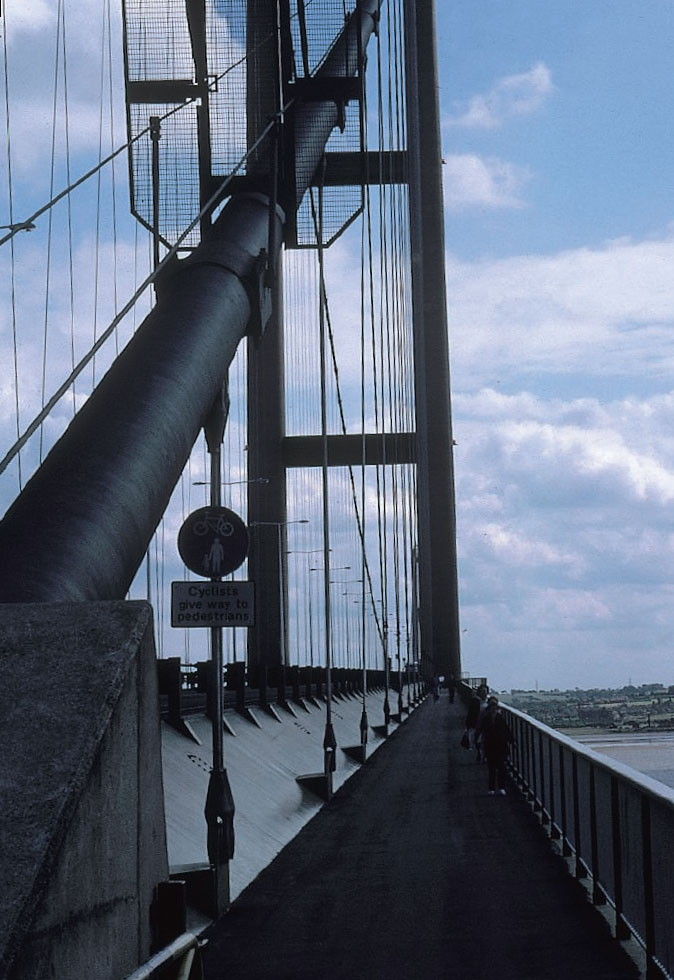
DANA HUNTLEY
The BBC received more than 1,000 suggestions when it invited nominations to find the United Kingdom’s greatest unsung landmarks. After narrowing the list to seven finalists in each of four regions, the BBC took the vote of the public. The regional winners of the poll are impressive landmarks indeed, but far too noticeable to be truly unsung. ’Twas the truly impressive structure of the Jodrell Bank Telescope that was the clear outright and popular winner overall.
North—Jodrell Bank Telescope. For 50 years, the world’s first giant radio telescope has been a beacon for miles across the Cheshire Plain near Macclesfield.
East—Humber Bridge. One of the world’s longest single-span suspension bridges, the Humber Bridge arcs across the Humber Estuary at Hull.
South—Cardington Airship Hangers. Originally built to house airships in the 1930s, these huge buildings dominate the landscape just southeast of Bedford.
West—New Severn Crossing. It took four years to build the spectacular threemile bridge across the Severn that connects England and Wales near Bristol.
REBREAKING THE CODE
For the first time since 1945, WWII veterans are prepared to show the world how they cracked the Nazi Enigma codes. The original code-breaking machines were disassembled when the war in Europe ended, and no design drawings survived. It has taken 10 years for enthusiasts to replicate the machines that deciphered thousands of Nazi messages. Known as the Turing Bombe, the codebreaker was devised by mathematicians Alan Turing and Gordon Welshman.
The replica machine will be on display at Bletchley Park in Buckinghamshire, where the code was cracked. Before the invention of the machines (which stood more than 7 feet high), Allied cryptographers were baffled by the millions of permutations to the Enigma code. Once they had the Turing Bombe, cryptographers at Bletchley Park could decode more than 3,000 messages a day. Many analysts credit the complex device with shortening the war by two years.
[caption id="InBritainTheseDays_img9" align="aligncenter" width="626"]
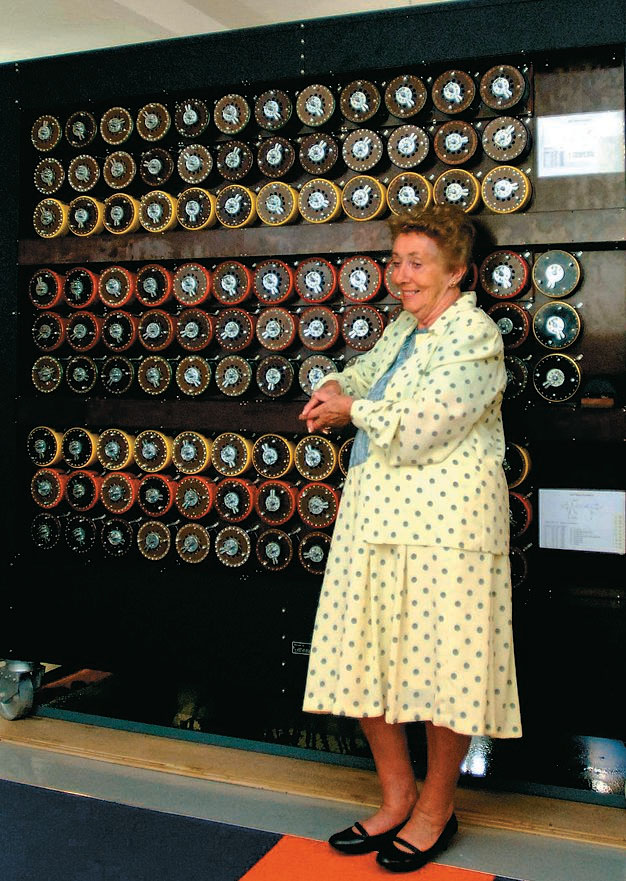
RUI VIEIRA/PA/EMPICS





Comments